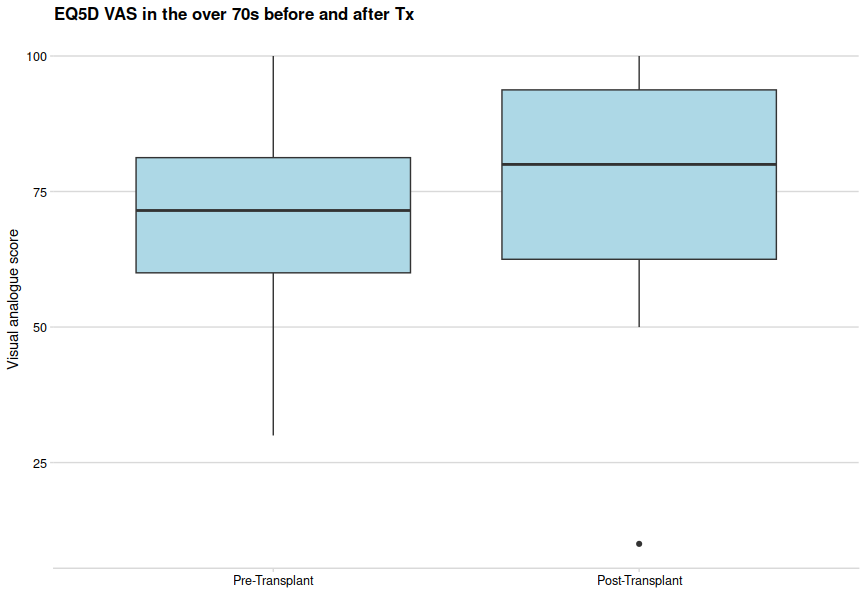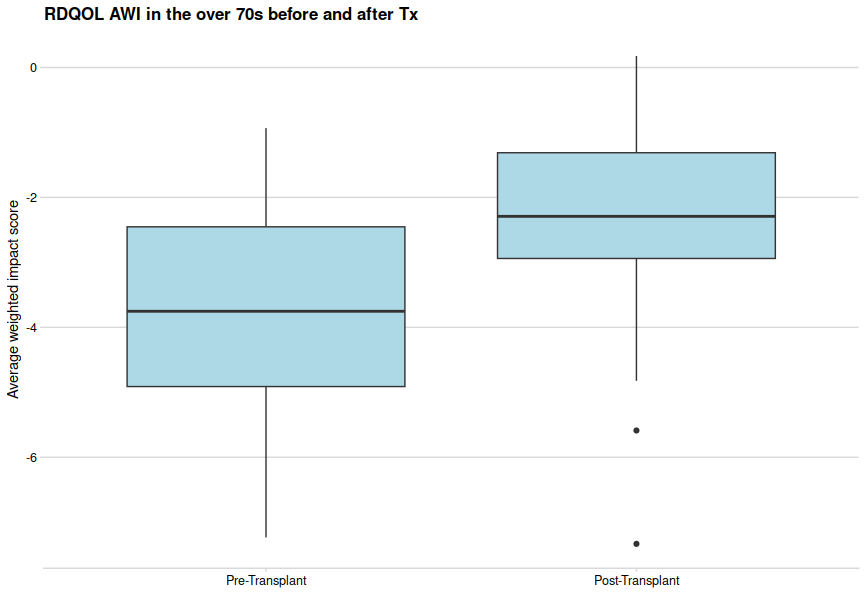
Renal transplantation provides a quality of life benefit in the over 70s
Joanne Devlin1,2, Emma Aitken1,2, John Asher1,2.
1Renal and Transplant Unit, Queen Elizabeth University Hospital, Glasgow, United Kingdom; 2ICAMS, University of Glasgow, Glasgow, United Kingdom
Introduction: It has long been accepted that transplantation in the over 70’s brings a quality-of-life benefit but not a survival benefit. We have shown in a previous study that in carefully selected patients over 70 that there is survival benefit compared to staying on the waiting list. Whilst the QOL benefit has assumed, we have conducted a review of this in this age group with the use of 2 validated questionnaires, which proves that this is the case.
Methods: As part of outcome reporting, we conducted a large-scale assessment of QOL within our transplant population over the past three years using two validated questionnaires, RDQoL, and EQ5D, measured at time points before and after transplant. We extracted from this data the pre-transplant and six-month post-transplant metrics from both questionnaires for patients over 70 at the time of the transplant.
Results: We found that the mean EQ5D visual analogue score was 70.0 before transplant and 75.5 after transplant in patients over 70, and EQ5D index were 0.81 and 0.83 before and after transplant. The mean RDQoL average weighted index was -3.79 before transplant and -2.38 after transplant.


Conclusion: We have found that there has been a quality-of-life benefit for patients over 70 receiving a transplant in both sets of questionnaires. While these numbers are small, larger scale studies are needed to confirm this and draw out any factors predicting the magnitude of improvement.
[1] kidney
[2] function
[3] quality of life
[4] transplant
